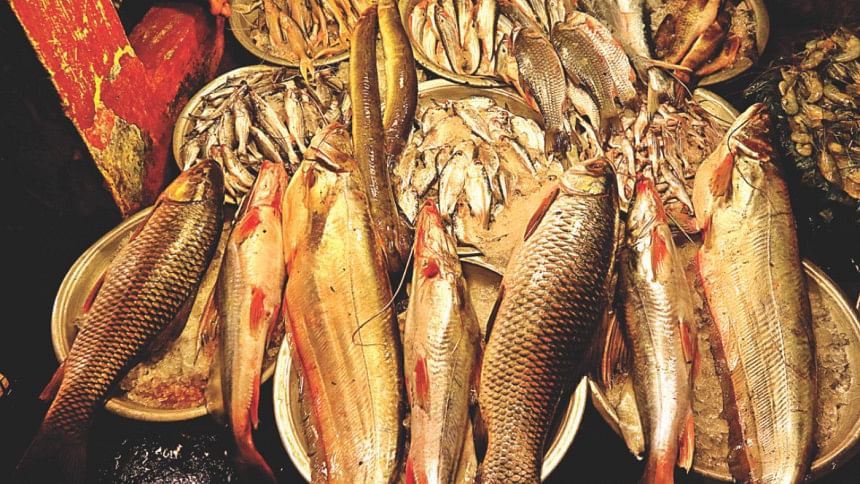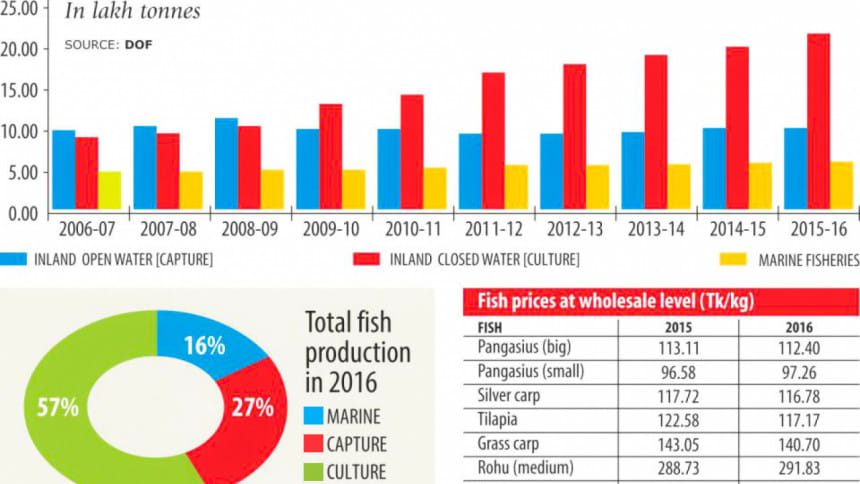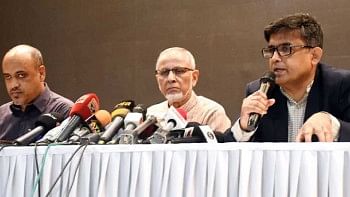Fish farming bogged down by losses

Inland fish producers are incurring heavy losses as the market price of fish remains stagnant amid spiralling costs of production.
Take, for instance, Noor Khan, a fisheries owner in Mymensingh's Trishal upazila, who is counting losses of Tk 15 on per kilogram of Pangasius fish. His production cost is Tk 80 per kg but the most the fish is fetching is Tk 65 per kg.
The developments come against the backdrop of a great success story of inland fish producers, who made Bangladesh the fifth largest producer of cultured fish in the world in 2016, according to the Food and Agriculture Organisation.
But the rapid growth in fish production is proving to be a curse for the inland fish farmers: its market did not increase accordingly and neither did its price.

Meanwhile, the prices of raw materials like fish feed are on the rise.
The price of fish feed, the main raw material used in fish culture, has increased 15-20 percent over the course of 2016, according to Khan.
Inland fish culture accounted for 56.82 percent of total fish production in fiscal 2015-16, according to the Department of Fisheries.
And yet the sector is not getting the attention from the government.
"Neither do they address the problem of losses the farmers are facing nor do they take any measures to avert such a situation," said Shamsul Alam from Mymensingh, a fishery and hatchery owner involved in fish culture for more than 20 years.
Many orthodox fish farmers are even thinking of stopping fish production and changing business as they could not even raise the money they spent on fish feed by selling their produce in today's market, Alam added.
Citing the example of growing popularity of "recirculating aquaculture system (RAS)" in neighbouring countries like India and China, Alam said the government could introduce new technologies and methods of culture to farmers to cut down costs and space used in fish farming.
RAS is a series of culture tanks and filters where water is continuously recycled and monitored to keep a suitable habitat for fish round the year. It is an alternative to outdoor open aquaculture.
"A farmer gets his desired amount of fish produce with smaller amount of fish feed in lesser time in this system," said Alam, also the pioneer of RAS in Bangladesh.
The current attitude of the government towards the fish culture industry as a whole will not help the industry to be sustainable, said AKM Abu Noman, a fish and fish feed producer.
"The experts and the authorities should tell the farmers what to do to avoid the overwhelming losses or should tell them to stop producing fish altogether."
He also said the government should take steps to debunk the myths surrounding fish farming.
For instance, it is often said that consuming tilapia fish can lead to cancer.
"Nothing of this sort has been proved by science," he said.
There is no quality control and regulations for the fish in the market or the fish feed.
"Fisheries are being set up like mushrooms without proper guidelines, training and knowledge about the intricacies of fish production. These non-experts are producing poor quality fish without much investment."
Therefore, the serious farmers are facing massive losses and are progressively losing interest in the trade, Noman added.
Mohammad Mahfujul Haque, head of the department of aquaculture of the Bangladesh Agriculture University, acknowledged the problem of huge losses incurred by farmers.
"A lot of the farmers have come to us for solutions. They struggle to even match the production price, let alone make a profit."
Haque suggested exporting more inland cultured fish as a solution to this problem.
He, however, said the produced fish here may not match the quality needed for the export market, so the need for quality control has become all the more pertinent.
Haque went on to cite the case in Vietnam, where the government has set up a certifier body to control the quality and price of both fish feed and fish.
"With the seal of the Vietnamese certifier body the fish can be exported anywhere in the world," he said.

 For all latest news, follow The Daily Star's Google News channel.
For all latest news, follow The Daily Star's Google News channel. 



Comments